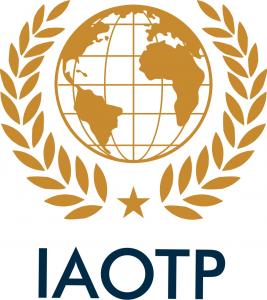
Prosper Insights & Analytics
Prosper's Consumer Mood Index, reveals important insights into U.S. consumers across key political groups—Democrats, Republicans, and Independents. This data highlights the complex relationship between macroeconomic conditions and consumer happiness.”
— Phil Rist, EVP of Strategy at Prosper Insights & Analytics. WORTHINGTON, OHIO, UNITED STATES, September 3, 2024 /EINPresswire.com/ -- Prosper Insights & Analytics has released its latest analysis of the Prosper Consumer Mood Index, revealing important insights into the evolving sentiment of U.S. consumers across key political groups—Democrats, Republicans, and Independents. The data, spanning from January 2023 to August 2024, highlights how macroeconomic conditions have influenced consumer happiness and confidence.
Key Findings:
• Democrats and Republicans Maintain Higher Consumer Mood: Both Democrats and Republicans have consistently reported a Consumer Mood Index above 100, indicating a generally positive sentiment. Democrats reached a peak confidence level of 111.3 in February 2023, while Republicans saw their highest index at 112.8 in April 2023. Despite facing challenges such as rising inflation and interest rates, these groups have demonstrated resilience, with Republicans reporting a strong recovery to 109.7 in August 2024.
• Independents Show Signs of Recovery After Prolonged Dip: Independents have faced more significant volatility in their mood index, often reporting levels below 100, reflecting a less optimistic outlook compared to their Democrat and Republican counterparts. The lowest point was recorded in December 2023 (91.9), coinciding with peak inflation and economic uncertainty . However, by August 2024, the index for Independents improved to 98.0, suggesting a gradual recovery as economic conditions stabilize.
• Macroeconomic Context Influences Sentiment: The varying levels of consumer mood across these groups can be closely tied to broader macroeconomic trends, including inflation, interest rate adjustments, and fiscal policies. Democrats and Republicans maintained a relatively higher level of optimism, possibly reflecting confidence in economic policy outcomes . In contrast, Independents, who displayed greater sensitivity to economic instability, are now showing signs of renewed confidence as inflation cools.
Analysis: "This data highlights the complex relationship between macroeconomic conditions and consumer happiness," said Phil Rist, Executive Vice President of Strategy at Prosper Insights & Analytics. "While Democrats and Republicans have shown steady consumer mood through economic challenges, Independents have been more affected by instability . However, the recent improvements across all groups suggest that as economic conditions stabilize, consumer sentiment is beginning to rebound."
Prosper's Consumer Mood Index is based on how US adults rate their happiness level for ten different aspects of their lives. The top two box score (Happy/Totally Happy) is calculated for each and then an average of the top two box scores for all ten categories is calculated for each month.
Prosper's Consumer Mood Index is an indicator of how overall consumer happiness has changed since the question was first asked in February 2010. An index greater than 100 means that happiness is up from the baseline, an index below 100 means that happiness is down from the baseline, and an index of 100 indicates that happiness has not changed from the baseline.
Looking Forward: As the U.S. economy continues to recover from recent challenges, Prosper Insights & Analytics will continue to monitor these trends, providing critical insights to help businesses, policymakers, and investors understand and anticipate shifts in consumer behavior.
About Prosper Insights & Analytics Prosper Insights & Analytics is a leader in US consumer intelligence, offering 22 years of comprehensive zero-party data on behaviors, motivations, psychographics, and future spending plans. Our cutting-edge analytics transform this data into actionable insights, enabling marketers, corporations, and investors to anticipate trends and respond proactively, gaining a competitive edge in their industries. Prosper datasets provide early macroeconomic forecasts weeks in advance for institutional fixed income, equity and foreign exchange investors.
Phil RistProsper Insights & Analytics+1 [email protected] us on social media:XLinkedIn
Legal Disclaimer:
EIN Presswire provides this news content "as is" without warranty of any kind. We do not accept any responsibility or liability for the accuracy, content, images, videos, licenses, completeness, legality, or reliability of the information contained in this article. If you have any complaints or copyright issues related to this article, kindly contact the author above.
You just read:
News Provided By
September 03, 2024, 17:30 GMT
EIN Presswire's priority is author transparency. We do our best to weed out false and misleading content. The content above is the sole responsibility of the author who makes it available. If you have any complaints, kindly contact the author above.
Originally published at https://www.einpresswire.com/article/740419788/prosper-insights-analytics-releases-new-data-consumer-mood-reflects-resilience-amid-economic-fluctuations





